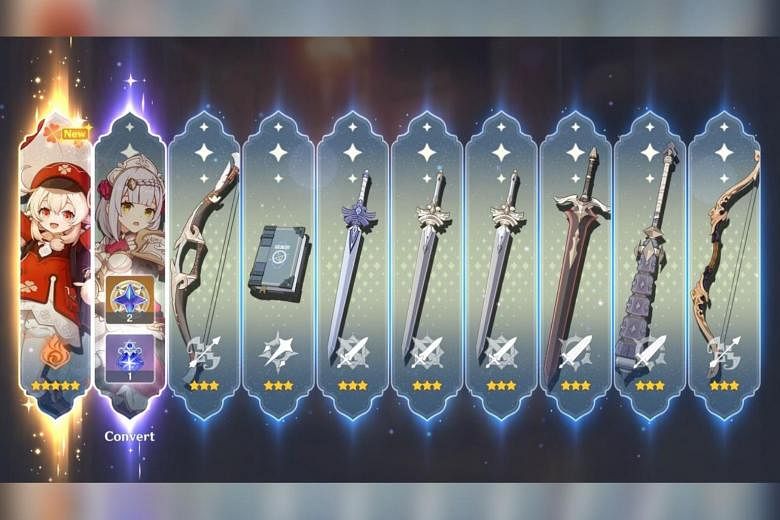Loot boxes in video games, including mobile titles, are akin to virtual goodie bags that have random rewards.
They can be bought with digital currencies earned in a game or purchased indirectly with real cash, and assume such names as card packs, summons and supply crates.
Loot boxes tend to be found in mobile games that are free to download, but have also made their way into paid PC and console games.
Games with loot boxes are sometimes also called "Gacha" games, a term that comes from the Japanese capsule-toy vending machines called Gashapon or Gachapon.
Some counsellors have argued that virtual loot boxes are more easily accessible than their physical counterparts such as sticker packs, because the barriers to get people to buy loot boxes are lower. This is due to their digital nature and how they are worked into a game.
Some players may also not even think that they are spending real money on the loot boxes.
LOW ODDS
A loot box can be worth the equivalent of a few dollars in real cash, but it often cannot be traded for actual money.
Prized rewards from these boxes can have a low chance of less than 1 per cent of dropping, with some reportedly being as low as 0.00005 per cent.
Rare rewards can give gamers a big advantage, such as a weapon that makes a player's character more powerful.
In other instances, the rewards are cosmetic to dress up game characters.
GAMBLING FEARS
Social workers and video game experts have raised concerns over the addictiveness of loot boxes, saying the thrill of not knowing what one might get stimulates the production of a chemical known as dopamine which is linked to rewards and motivation.
This can make loot boxes very addictive.
Such marketing tactics are seen to some degree in the real world, where online stores selling beauty products hold mystery box promotions.
Some addiction experts have also likened the sensory triggers from the sound effects and animations of opening loot boxes to playing slot machines in casinos.
GOVERNMENT ACTION
Several countries have taken action against loot boxes.
Belgium banned them from games in 2018. The Belgian Gaming Commission looked into the matter after harsh public criticism globally of the Star Wars Battlefront II game released in November 2017.
The game initially had loot boxes, but they were removed after the fallout from fans and gamers.
In June this year, Britain's Department of Digital, Culture, Media and Sport launched a call for evidence in its investigation to determine whether to reclassify video games with loot boxes as gambling products.
If ministers in Britain opt to reclassify loot boxes, game developers could be forced to pull some titles or redesign them so that they can be sold to people aged under 18.
Meanwhile, Apple has required game developers to reveal the odds of getting loot box prizes in games on its App Store since 2017. Google implemented similar requirements on its app store last year.


